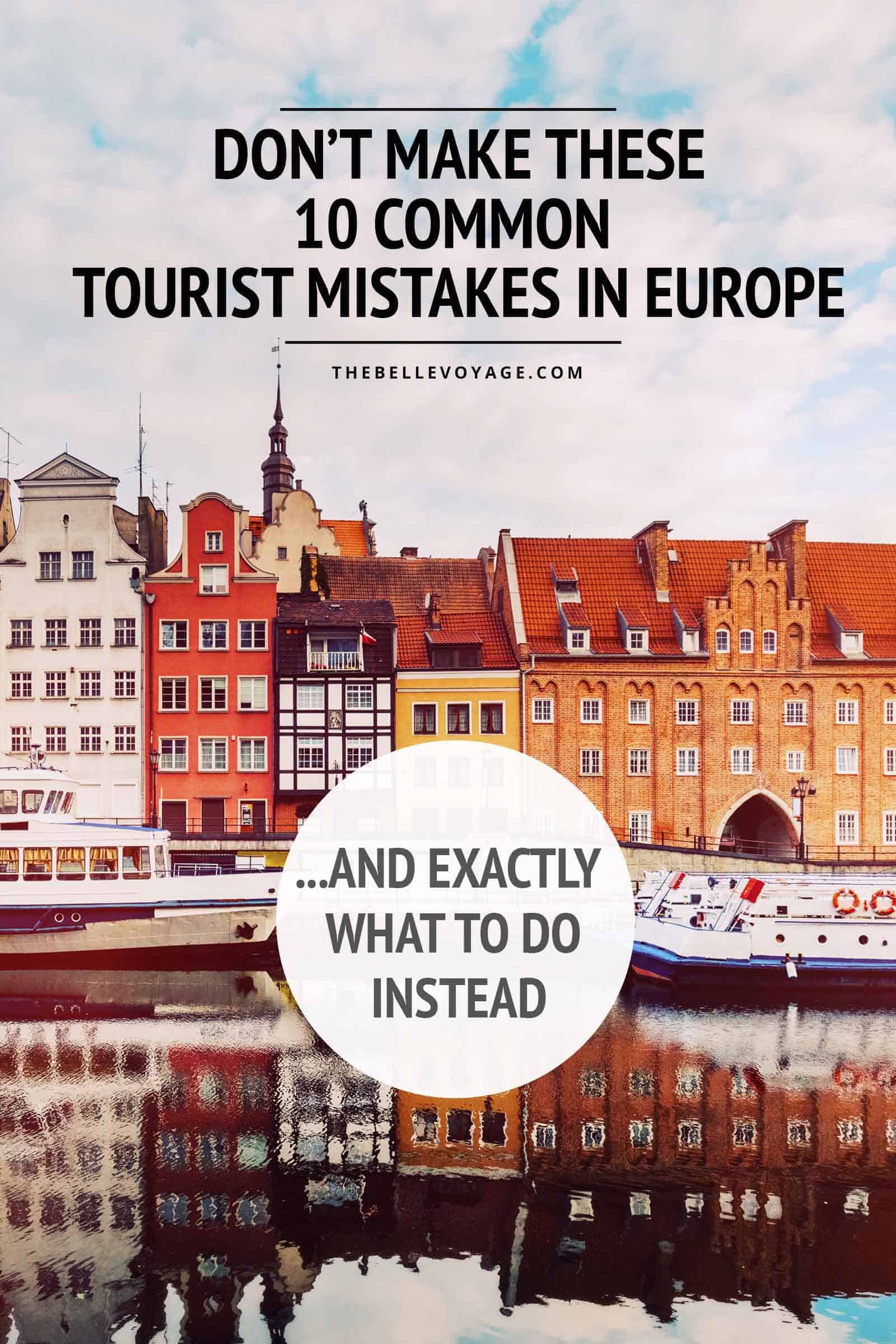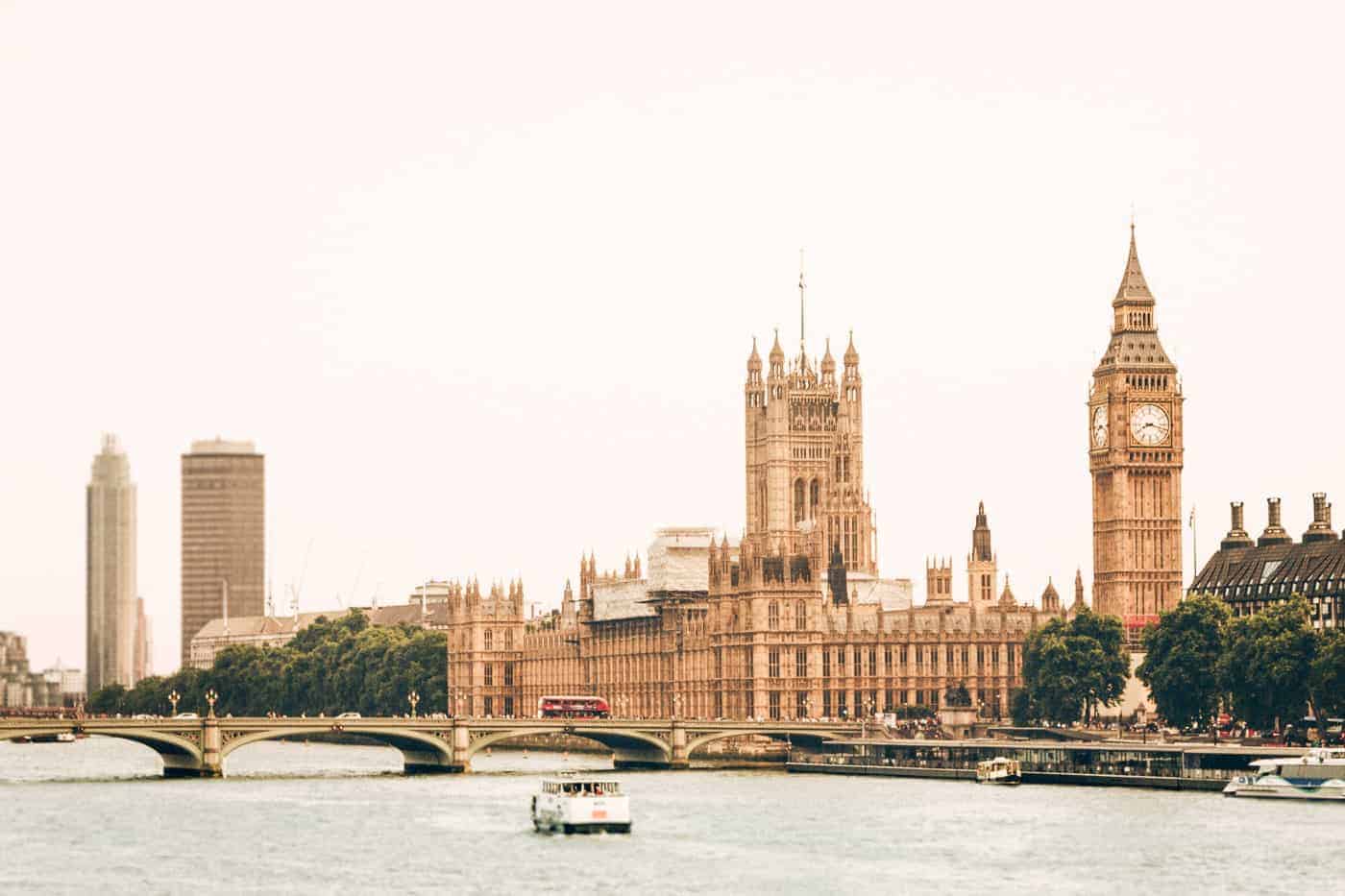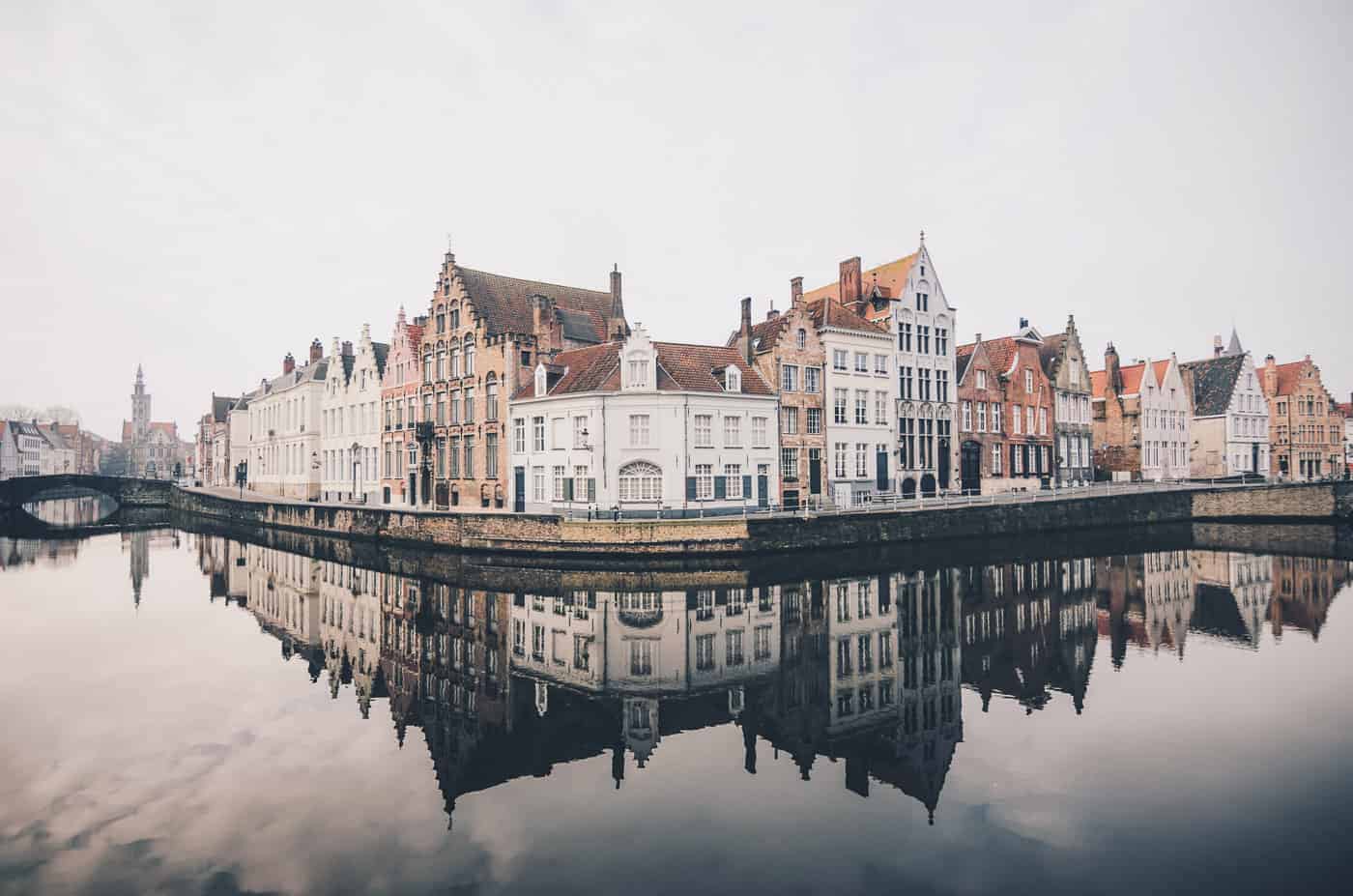4 Things to Know Before Traveling to Europe This Summer, According to an Expert
Stacey Leasca is an award-winning journalist. Her photos, videos, and words have appeared in print or online for Travel + Leisure, Time, Los Angeles Times, Glamour, and many more. You’ll usually find her in an airport. If you do see her there, please say hello.
Some European borders are open to American tourists. Others, however, remain adamantly closed. Some countries require a negative PCR test, others require a full vaccine identification card. Some are in the “green” list, others in the “amber”. and on, and on, and on, in one confusing jumble of post-pandemic haze that can admittedly make the return of travel a bit overwhelming. But if you’re ready, Luis Araújo, president of both the European Travel Commission and Visit Portugal, the Portuguese National Tourism Board, says book a ticket and stay a while — so long as you follow the rules.
“What you’ll find [in Europe] is a very controlled situation regarding the pandemic,” he told Travel + Leisure over Zoom. “Fortunately, in Europe, we have been controlling the spread of the disease, which is excellent. We have also been controlling the pressure on our national health system.”
:max_bytes(150000):strip_icc()/portugal-lisbon-EUSUMMERTRAVEL0621-bf41f6ffa2104a38b4324604704230b4.jpg)
Of course, like anywhere in the world today, there are spikes in certain places, he noted. But, at least now, Araújo said, officials are ready for whatever comes their way.
Here’s what Araújo says you need to know about visiting Portugal and Europe as a whole in the months to come.
The hospitality industry is working hard to welcome you.
“We’ve been working hard, and it’s not just Portugal,” he said. “Many, many countries have been working on new protocols in order to reassure the needs of everyone.”
Araújo pointed out that nations around Europe have worked out new safety and health systems to stem the spread of COVID-19 and its variants. And people in the hospitality space are happy to comply.
“Especially here in Portugal, everyone complies, there are very clear rules on what you can do,” he said, pointing to rules like the nation’s restaurant capacity regulations, mask mandates, and more.
He also called out Portugal’s Clean and Safe program, a certification issued to establishments that “comply with hygiene and cleaning requirements for the prevention and control of COVID-19 and other possible infections.” More than 22,000 companies have been certified with the program to date.
“Everyone is much more eager to welcome tourists,” Araújo added. “We see that not only because we’re here and we go to restaurants and we go out and we walk in the streets, but also because people are really happy to be with other people again.”
Be prepared to do your own homework.
“We are living in a very bizarre time,” Araújo said. “We need to be aware of all the things that are happening in the entire world.”
Travelers hoping to once again summer in Portugal, swim in the waters off the south of France, bounce around the Italian countryside, sip a beer in a British pub, or some combination of these activities must first be willing to put in the work to understand each individual country’s mandates and how to navigate them all. That’s because, as of now, there is no international system of rules, no agreed upon guidelines, and no one single centralized location to find out just what you need and where. While there are a few things you can rightfully assume — the need to carry a vaccine card if you have one, the likelihood that you’ll also need a negative COVID test and to fill out some pre-travel forms — there are still plenty of ways to gather intel.
:max_bytes(150000):strip_icc()/france-paris-EUSUMMERTRAVEL0621-a1f6fec1cdb0416aae59c98614b5f9f4.jpg)
“Visit Portugal has all the information regarding moving inside Portugal and coming to Portugal,” Araújo said, adding there are other sites to peruse including Reopen EU, a website put together by the European Union that “provides information on the various measures in place, including quarantine and testing requirements for travelers, the EU Digital COVID certificate to help you exercise your right to free movement, and mobile coronavirus contact tracing and warning apps.”
“Hopefully,” Araújo said, for his country, “the vaccine will be sufficient one day, but for now we need to have the tests 72 hours prior.”
Travel insurance is more important than ever.
When asked if there’s a plan in place if another COVID-19 outbreak should occur across large swaths of Europe, Araújo didn’t quite point to a plan, but rather, the idea that we’ve all collectively learned from our past, our mistakes, and our misunderstandings, making it possible to be more prepared should the worst occur.
“What we see now is that there is much more information than we had a year ago,” he said. “Science has had a very big evolution. There has been a very big coordination in terms of health systems in order to prevent [a spike], and there has been a lot more shared information going from one place to the other.”
:max_bytes(150000):strip_icc()/italy-venice-EUSUMMERTRAVEL0621-13188535ecbc4fc899ad35ce43a0c415.jpg)
While officials are working together for any plan B, Araújo notes you should as well, in the form of travel insurance for any trip you may have planned to Europe in the near future.
“There is a platform called Portugal Health Passport. If you register, you’ll gain access to the Portugal health system, and the public health system in Portugal is top of the world,” he said.
Araújo explained there are also a plethora of other insurance options out there to help travelers get out and explore while also providing any needed support such as covering a COVID-19 test, or needing to cover a quarantine hotel or new flight home. (See more on that with T+L’s own in-depth guide to the complicated world of travel insurance in the midst of a pandemic.)
It’s OK to be excited again and to “get lost” in the moment.
“I always say that the best thing in Portugal is getting on a flight that arrives in any of the five airports, renting a car, and getting lost. That’s the best thing you can do in Portugal,” Araújo said. He’s speaking from experience, as he too spent the last year staying domestic, but getting “lost” around his home country. He discovered new spots and rediscovered old favorites like the Azores, Algarve, and Madeira, the autonomous island chain located just off the coast of northern Africa.
“This is the time to start,” Araújo said of the return to travel. “It’s time for a simple reason: Because you cannot be totally, completely yourself if you don’t travel and if you don’t meet other people.”
Stacey Leasca is a journalist, photographer, and media professor who can’t wait to get back to Europe this summer. Send tips and follow her on Instagram now.
12 Essential Travel Tips for First Time Visitors to Europe
Traveling to Europe for the first time? Planning your first trip to Europe can be incredibly overwhelming, especially if you have never traveled abroad before. I’ve got you covered with all of my best travel tips and what to expect for first time visitors to Europe! Read on for the entire guide, and you’ll be traveling around Europe like a pro in no time!

1. First Time in Europe? Don’t Try to See Too Much!
Trying to see too much is probably the most common mistake that tourists make during their first trip to Europe. If it’s your first time traveling to Europe, it’s understandable to want to see it all.
But if you spend your time in Europe racing from one city to the next, or one country to the next, you’ll spend a lot of time in transit, and you won’t be able to relax, enjoy, and really get to know the places you’re visiting.
Instead of trying to cram everything into one trip, try to just take your time and really explore where you are. Less is more!
If you’re spending 10 days in Europe for your first trip, I’d recommend limiting your stops to no more than three places. This will give you enough time to recover from jet lag, and allow you to explore each city at a more leisurely pace.
For my best tips on stress-free flying, check out this post.
How to Plan the Perfect First Trip to Europe
Depending on where you’re going, I’ve got ideas for how to plan your time! Check out the perfect itineraries I’ve put together for trips to London, Barcelona, Copenhagen, Stockholm and Berlin!
And if you’re heading to Italy, make sure to check out my Italy tips for first timers. I’ve also got a list of all of the do’s and dont’s when visiting Spain for the first time.
Pro Travel Tip: These days, travel can be more uncertain than ever. Check for any COVID-related restrictions at your destination, and never travel without travel insurance! I recommend SafetyWing, because they have flexible + affordable insurance plans, and also cover COVID-related impacts on your trip (not all companies do)!
2. Don’t Leave This at Home
If you’re going to Europe for the first time, don’t make the mistake of forgetting to bring a power adapter! Here’s a set of four that I love and it’s under $14 on Amazon.
If you’ll be visiting more than one country on your trip, you may need a unique adapter for each one. The one I’ve linked to above will cover almost every country in Europe, but it’s always a good idea to just double check.

3. Exactly What to Pack if You’re Traveling to Europe for the First Time
Another common mistake for first time travelers to Europe? Packing a gigantic bag. I promise that your trip will go much more smoothly if you can lighten your load and limit your luggage to one carry on bag.
Pack Light for your First Trip to Europe
Why? Well, in Europe, you’ll probably end up carrying your bag on and off of trains, or up and down stairs far more frequently that you would in the US.
When it comes time to lift your bag, you’ll be glad that you don’t have to wrangle a 50lb monstrosity. Need some help packing light? Check out my best packing tips for women, and don’t forget to check out my top ten packing tips for Europe. You’ll also love the European capsule wardrobe I’ve put together!
Not to mention, cars in Europe can be quite compact, so if you’re renting a car, think carefully about how much space you’ll have for luggage. More than likely you won’t be able to fit a giant suitcase in your rental car!
4. Don’t Make the Mistake of Packing Only Shorts
Speaking of packing, many first-time tourists in Europe make the mistake of packing only shorts for warm weather. Shorts are a staple in summer dressing in the US, but they’re far less common in Europe.
In Europe, you’re more likely to see a skirt or dress, or even Capri-length pants before you’ll see shorts. So if you want to blend in with the locals, you might want to leave your shortest shorts at home.
5. Don’t Forget to Pack Good Walking Shoes
Another tip when it comes to packing for your first trip to Europe: don’t forget to bring comfortable shoes. Chances are good that you’ll be taking public transportation while you’re visiting Europe, so that means you’ll be doing a lot of walking.
These ballet flats are by far my favorite shoe to pack when I know I’ll be doing a lot on foot during a trip. They come in a ZILLION different colors (including rose gold….WHAT. ) If you’re on the hunt for more, I’ve rounded up all my other picks for stylish walking shoes for Europe.
6. Visit Europe During The Best Time of Year
If it’s your first trip to Europe, think carefully about WHEN you decide to time your visit. The peak summer months of July and August can be incredibly crowded with tourists. In addition, prices for hotels and air travel can be sky-high.
August can be especially crowded and expensive because it’s also the month when most Europeans take their summer vacations.
Not to mention that temperatures, particularly in Southern Europe, can be scorching! Add in the fact that many older buildings in Europe don’t have air conditioning and you have a recipe for a painful vacation.
When to Visit Europe for the First Time
For first-time travelers to Europe, I always suggest visiting in the late spring or early fall. May and September are good bets in terms of weather, prices and crowds.

7. Be Prepared to Learn Public Transportation
Compared to the US, most European cities are well-serviced by public transportation. In addition, public transport is typically the fastest and cheapest way to navigate many European cities.
Even if you’re a novice when it comes to riding the bus or taking the subway, don’t be daunted by the prospect of public transportation in Europe! Most systems are pretty easy to use, and depending on where you are, it’s not uncommon to see signs and ticket information in English.
Think of public transportation as part of the adventure! After all, it is the best way to experience a new city the way that a local would.
8. Don’t Make the Mistake of Sticking Too Closely to a Guidebook
If you’re visiting Europe for the first time, it’s a common mistake to follow a guidebook every step of the way. Guidebooks are useful when it comes to planning your first trip to Europe, but try to rely on them to just get a general sense for your destination.
If you want to have a more authentic experience during your trip, try wandering off the beaten path for an afternoon. You’ll be more likely to uncover “real” neighborhoods and local favorites, and you’ll get a better sense for what life is really like in another country.
And best of all – you won’t have to carry around a heavy guidebook!

9. How to Avoid Crowds at Tourist Hotspots
The good news is that you’re planning a trip to Europe. The bad news? So are a lot of other people!
There are some places in Europe where I am constantly amazed at just how crowded they can be with tourists. Places like Sagrada Familia in Spain, the Eiffel Tower in Paris , and the Cinque Terre in Italy can be absolutely crawling with tourists, especially during peak season.
How to Plan your Days in Europe
If you plan to visit any tourist hotspots during your first trip to Europe, plan to go very first thing in the morning. Chances are good anyways that you’ll be jet-lagged, and you’ll thank yourself for setting an early alarm once you see the crowds start to roll in.
One more benefit? Fewer crowds make for better travel photos!
Another tip if you’re going to Europe for the first time: always, always check online to see if you can buy tickets to something ahead of time. Museums, churches, really anything! You’ll save yourself from having to wait in a long line, and chances are good that you’ll be able to buy a ticket for a discount.
10. Renting a Car in Europe: The Do’s and Don’ts
If you’re planning to rent a car during your first trip to Europe, keep in mind that many rental cars are stick shifts. Many tourists make this mistake during their first trip to Europe, and forget to specify that they need a car with an automatic transmission.
Consider automatic vs. manual transmissions
Cars with automatic transmissions are available to rent in Europe, but typically for an extra fee. If you’re unable or prefer not to drive a car with a manual transmission while you’re in Europe, pay careful attention when you book your car.
Many booking sites in Europe will default to rental cars with manual transmission unless you specifically indicate that you need an automatic transmission.
Take Out Additional Insurance When Driving Abroad
Speaking of renting a car during your first time in Europe, make sure that you’re protected by car insurance.
Most insurance companies in the US don’t provide coverage for renting a car abroad. Even if you’re covered by a credit card, it’s just a good idea to take out the extra insurance when you rent a car in Europe.

11. Always Learn a Few Phrases in the Local Language
If you’re going to Europe for the first time, you probably have a million things on your to-do list. Don’t hate me for adding one more!
It’s always a good idea to learn just a few phrases in the local language when you travel, and Europe is no exception. Yes, many people speak English, and speak it quite well. That said, it’s still polite to be able to greet someone and converse in basic terms in the local language.
By that, I mean things like Hello, Goodbye, Thank you, You’re Welcome, etc. Nothing crazy, but a few words can go a long way in showing that you’re making an effort.
12. Don’t Make the Mistake of Paying Extra Credit Card Fees Your First Time Abroad
Another mistake that first timers in Europe make? Paying foreign transaction fees for using a credit card abroad. If you’ve never used your credit card outside of the country before, you might be surprised to see an extra fee tacked on to any charges made internationally.
Before you go to Europe, make sure that you have a credit card that doesn’t charge for foreign transactions. These fees can add up, especially if you’re planning to do a lot of shopping while you travel.
The Best Credit Card for First-Timers in Europe
Before you go to Europe, sign up for a credit card that doesn’t charge an extra fee for foreign transactions, or just plan to use cash to pay for your purchases.
If you’re looking for a credit card to use during your first trip to Europe, I highly, highly recommend this one. The welcome bonus is amazing! Even though the annual fee is high, it easily pays for itself with the statement credits you can earn at Marriott hotels.
And best of all – you won’t incur any foreign transaction fees with this card!
There you Have it – What to Expect on Your First Trip to Europe, and The Common Mistakes to Avoid!
I hope that this list of common tourist mistakes in Europe helps you have a safe and smooth trip for your first time in Europe. Now that you know what to expect your first time in Europe, you can focus on just enjoying your trip!
Pin it for Later!

Wanna Learn to Pack a Suitcase Like a Boss?
![]()
Subscribe to download my three BEST travel planning resources:
Success! Now check your email to confirm your subscription and download your files.
What you need to know about traveling to Europe this summer

(CNN) — In non-pandemic summers, both continental Europe and the United Kingdom draw crowds of tourists from around the world. Last summer, they couldn’t get there. This summer many should be able to, though the tangle of entry requirements will vary by country and could change quickly.
Here’s a guide to help you determine where and when you can vacation this summer in the 27 member countries of the European Union and in non-EU European countries.
When will I be able to go?
This will vary by country visited and the traveler’s home country. Throughout Europe and the United Kingdom, conditions of and requirements for entry differ from country to country, as does timing. The EU is trying to create more universal requirements for tourism, but each country retains sovereign powers to controls its borders in an emergency.
There are currently nine countries on the EU’s “White List,” a list of countries whose citizens are permitted to do non-essential travel (such as vacation travel) to the European Union. As of June 3, when the last list was released, countries on the White List were Australia, Israel, Japan, New Zealand, Rwanda, Singapore, South Korea, Thailand and China. This list is expected to be updated shortly and could include the United States.

Umbrellas on a beach at Agia Pelagia on the Greek island of Crete were ready for tourists on May 14, 2021. Greece has eased restrictions for some international visitors while EU-wide policies are still being finalized.
On May 20, the EU also adopted a “roadmap,” or recommendation that would allow vaccinated travelers from outside the EU to go to Europe; details are expected to be finalized by the end of June. The roadmap will give each country an “emergency brake” mechanism that would close borders if there were a new Covid-19 outbreak, either in the traveler’s destination or home country.
While EU-wide policies are still being finalized, a number of European countries have opened or will shortly open their borders to non-European travelers under certain conditions; these include Greece, France, Italy, Spain, Turkey and Iceland.
Meanwhile, England, Northern Ireland, Scotland and Wales — the four countries of the United Kingdom, which is no longer part of the EU — have each established its own criteria for tourist travel, reviewed every three weeks. These criteria involve a red, amber and green system that could entail a quarantine and various tests, depending on the traveler’s home country.
What proof will be required to show I’ve been fully and properly vaccinated?
In May the EU adopted the concept of an “EU Digital Covid Certificate” for its own citizens, proposing that it be in place by July 1. This would digitally prove that the certificate holder had been fully vaccinated with an EU-approved vaccine (AstraZeneca, Johnson & Johnson, Moderna or Pfizer), had recovered from Covid-19, or had tested negative for it.
Although it is hoped Americans will eventually be able to digitally provide the same information when they travel to Europe, in order to gain entry there, it is unclear when and how this will happen, in part because the US government has not established a similar digital system. Currently, it appears Americans may be able to provide alternative types of proof, such as their paper vaccination card, for EU travel.

A supermoon sets behind the Eiffel Tower in Paris on April 27, 2021. France has also eased restrictions for some overseas visitors.
Will I need a Covid-19 test?
A Covid-19 test requirement will depend entirely on where you’re going. For example, as of now, England requires some visitors to test both before and after arrival. Italy now lets passengers on special “Covid-tested flights” from the US, Canada, Japan and the United Arab Emirates visit; passengers on these flights must test for Covid-19 before departure and on arrival in Italy, as well as on departure from Italy.
Anyone age 2 and older flying back into the United States will need a test within three days of their flight’s departure or prove they’ve recovered from Covid-19.
Can I book now, before the rules are finalized?
You certainly can, though thoroughly research cancellation and refund policies of any airline, hotel, tour operator or attraction you are considering before you book, in case anything changes — in your health or in the pandemic situation in your country or the country you are visiting — that would prompt you to cancel your trip.
Jennifer Tombaugh, president of Tauck, a Connecticut-based tour operator that specializes in travel to Europe, says travelers can “absolutely book now, though they should make sure they have a very good understanding of cancellation fees and any other restrictions. The bottom line is that it’s very important that you read the fine print, understand what payment is required when, what is refundable and what is not. A knowledgeable, plugged-in tour operator or travel agent can help you with this.”
How quickly will destinations get booked up, once any new rules are announced?
This will depend on the destination and if it is already accepting tourists, for example, from other European countries, the United States or Asia.
Greece, which has been letting certain tourists in since mid-April, is a popular destination that will probably get booked quickly. So is Portugal, which ended a ban on British tourists earlier this month (May).
It will probably be easier to book a vacation in a major European or British city, where many hotel rooms will likely be available, than in a small resort town with limited lodging options.

People visit the Sagrada Familia basilica in Barcelona on May 29, 2021. Spain plans to broaden entry to vaccinated travelers in June.
How difficult will it be to book a reasonably priced flight to Europe?
Terry Dale, president and chief executive of the United States Tour Operators Association, suggests “booking now — if you’re serious, get a placeholder.”
Both he and Eduardo Santander, executive director and chief executive of the European Travel Commission, a nonprofit organization that represents European national tourist offices, expect there might be a shortage of capacity on flights to Europe, since travel there has been in such flux, and it is not easy for carriers to respond quickly to increases in demand.
However, Craig Jenks, an expert on the transatlantic airline market, believes if you “book closer in, there will be opportunities” somewhere, due to imbalances between demand and supply. He suggests monitoring flights on websites like Google, Expedia and Travelocity.
Will I be able to cancel, if there’s a renewed shutdown or other unforeseen event?
That will depend entirely on the travel supplier — such as an airline, hotel or tour operator — you’ve booked. Although most airlines have been very flexible about not enforcing cancellation or rebooking fees during the pandemic and some have even eliminated certain change fees, it’s not clear how long their flexibility will last, if air travel demand continues to strengthen.
Travel agents encourage the purchase of trip insurance: Some policies are now available that provide coverage for pandemic-related disruptions, such as Covid-related cancellation, Covid medical coverage, and additional accommodation or transportation.
Will I be able to visit more than one country in Europe, whether I am traveling by land or on some sort of cruise ship?
This situation is in flux, as vaccine programs are rolled out, allowing borders to open, and as new variants are discovered, which close borders down. When the EU reaches agreement on standards for reopening and employs the Digital Covid Certificate, intra-European travel should be relatively easy and possible.
But, as of now, for example, Americans can go to Greece without quarantining, but they cannot visit Germany or the Netherlands. If you are working with a tour operator or a cruise line, it will have the latest information on intra-European travel.
Will I have to be tested or quarantine when I return to my home country?
That will depend entirely on the regulations of your home country. As mentioned, almost all air travelers entering the US are required to test before arrival or prove they’ve recovered from Covid.
What are the best sources of information to help me plan my trip?
Reopen.Europa.EU is a website maintained by the EU that provides an overview of the health situation in European countries and information on various restrictions in place, including quarantine and testing requirements for travelers, and on mobile coronavirus contact tracing and warning apps.
The Sherpa website is a Toronto-based, independent resource that offers the latest information on travel documentation and requirements worldwide.
The website of the European Travel Commission offers links to specific Covid information for its members’ countries. Also check the website of any airlines you are considering booking for their latest requirements.
Tom Jenkins, chief executive of ETOA, the trade association for European tour operators, believes major European cities have been pummeled by the pandemic and therefore will be evolving. “The service economy of Europe is adapting to huge changes in demand. Yet now is a great time to go there. Michelangelo’s ‘David’ and da Vinci’s ‘Mona Lisa’ didn’t catch Covid and they are feeling very lonely.”
“It will be an exciting and wild time,” predicts Tombaugh. “Expect the unexpected and have a good sense of humor to make the most of the new world of travel we are all discovering.”
Top photo: Balos beach and its lagoon on the island of Crete on May 13, 2021. Photo by Louisa Gouliamaki/AFP via Getty Images
A year of the world’s Best Beaches There’s a perfect beach for every week of the year. Join us on a 12-month journey to see them all
Source https://www.travelandleisure.com/travel-tips/travel-to-europe-what-to-expect-summer-2021
Source https://www.thebellevoyage.com/traveling-to-europe-for-the-first-time/
Source https://edition.cnn.com/travel/article/europe-travel-what-to-know-explainer-cmd/index.html